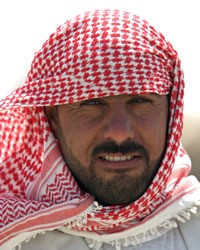North Iraqi Arabs in Australia trace their heritage to Arab communities from northern Iraq (regions such as Mosul, Nineveh Plains, and surrounding areas) and brought varieties of Mesopotamian/Levantine Arabic with them.
Migration to Australia occurred in waves: some arrived before and after the Iran–Iraq War of the 1980s, while larger numbers came after the Gulf War in 1991 and during subsequent periods of instability, persecution, and displacement in Iraq. Many came under family, skilled or humanitarian visa programs. Their primary language is North Mesopotamian
Arabic.
North Iraqi Arabs in Australia primarily reside in urban centers such as Sydney and Melbourne, as well as in other Australian cities where migrants settle for work, education, or family ties.
Their daily lives reflect a mix of cultures: many households use Arabic at home, while younger generations commonly speak English as well. Family and community networks play a central role in social life.
Members of the community work in a wide range of occupations, from small business and trade to professional fields, and many are actively involved in community organizations, cultural clubs, churches or mosques that serve social as well as spiritual needs.
North Iraqi Arabs are religiously diverse depending on local origin and family background; the group includes a high number of Sunni and Shia Muslims and a very small number of Christians of Arabic-speaking churches.
Religious institutions—such as mosques and Arabic-speaking churches—often serve as cultural centers where language, festivals, rites of passage, and mutual support are preserved.
To meet the deep spiritual needs of North Iraqi Arabs, there must be a clear and winsome presentation of the gospel—one that is thoughtfully contextualized to the Arabic linguistic and cultural environment. This ensures that individuals from both Muslim and nominally religious backgrounds can encounter the message of Christ without unnecessary cultural barriers or offense. Access to Scripture and discipleship resources in heart languages such as Mesopotamian and Levantine Arabic is essential, particularly materials suited to audio formats and younger audiences, so that both seekers and believers can meaningfully engage with God's Word. Many have endured the trauma of war, persecution, and displacement, so trauma-informed pastoral care and counseling are critical for healing emotional and psychological wounds. At the same time, spiritual growth is closely tied to stability in daily life; thus, support with English language learning, job skills, and navigation of Australian services empowers individuals and families to integrate into society with dignity. Raising up local, Arabic-speaking Christian leaders is vital for the long-term health of the church—leaders who are both culturally competent and deeply rooted in the local community.
In addition, inter-faith and community-bridging initiatives are needed to foster peace, reduce suspicion, and provide safe spaces for open and respectful dialogue about faith. Finally, spiritual ministry must be accompanied by practical expressions of Christ's love through tangible support—housing assistance, mental health care, family reconciliation services, and strong community networks that guard against isolation and despair.
Pray for pioneer workers to heed the calling on their lives to reach this unreached people group with the gospel of Jesus Christ, with love and compassion.
Please pray that God would open the hearts of North Iraqi Arabs who are searching or skeptical, drawing them to know Christ in ways that are deeply rooted in their cultural identity.
Pray for the timely completion and effective use of Arabic translations and contextual discipleship materials, particularly among families and youth who are navigating complex transitions.
Pray for healing from the trauma experienced by those who have fled violence, persecution, or loss, and that wise, compassionate counselors and pastors would be available to walk alongside them.
Pray for the younger generation that they would find their identity and purpose in Christ.
Pray for the raising up of local leaders and churches fluent in both Arabic and English, equipped to shepherd their communities with cultural sensitivity and biblical faithfulness.
Scripture Prayers for the Arab, North Iraqi in Australia.
Victorian Government — Iraq community profile (background on Iraqi migration and community life).
https://www.vic.gov.au/iraqi-community-profile
Wikipedia — Iraqi Australians (overview of history, language, religion and settlement).
https:/
| Profile Source: Joshua Project |











